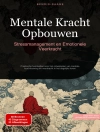This book explores the contribution of discursive psychology and discourse analysis to researching the relationship between history and collective memory. Analysing significant manifestations of the moral vocabulary of the Romanian transition from communism to democracy, the author demonstrates how discursive psychology can be used to understand some of the enduring and persistent dilemmas around the legacy of communism. This book argues that an understanding of language as an action-oriented, world-building resource can fill an important gap in the theorizing of public controversies over individual and collective meaning of the recent (communist) past. The author posits that discursive social psychology can serve as an intellectual and empirical bridge that can overcome several of the difficulties faced by researchers working in transitional justice studies and cognate fields. This reflective book will appeal to students and scholars of transitional justice, discursive psychology, memory studies, and the sociology of change.
สารบัญ
Preface.- Introduction: what does coming to terms with the past mean?.- 1. Transitional justice as situated practices.- 2. Collective and cultural memory: ethics, politics, and avoidance in remembering communism.- 3. Communism as moral problem.- 4. Communism as Other.- 5. Mea culpa.- 6. Remembering with and through archives.- 7. Transgression and the social construction of moral meanings.- 8. Using discursive psychology to explore contested and troubled pasts.
เกี่ยวกับผู้แต่ง
Cristian Tileagă is Senior Lecturer in Social Psychology at the School of Social Sciences at Loughborough University, UK. His research interests include discursive psychology, prejudice and social exclusion, and interdisciplinarity. He has published widely on these topics.












